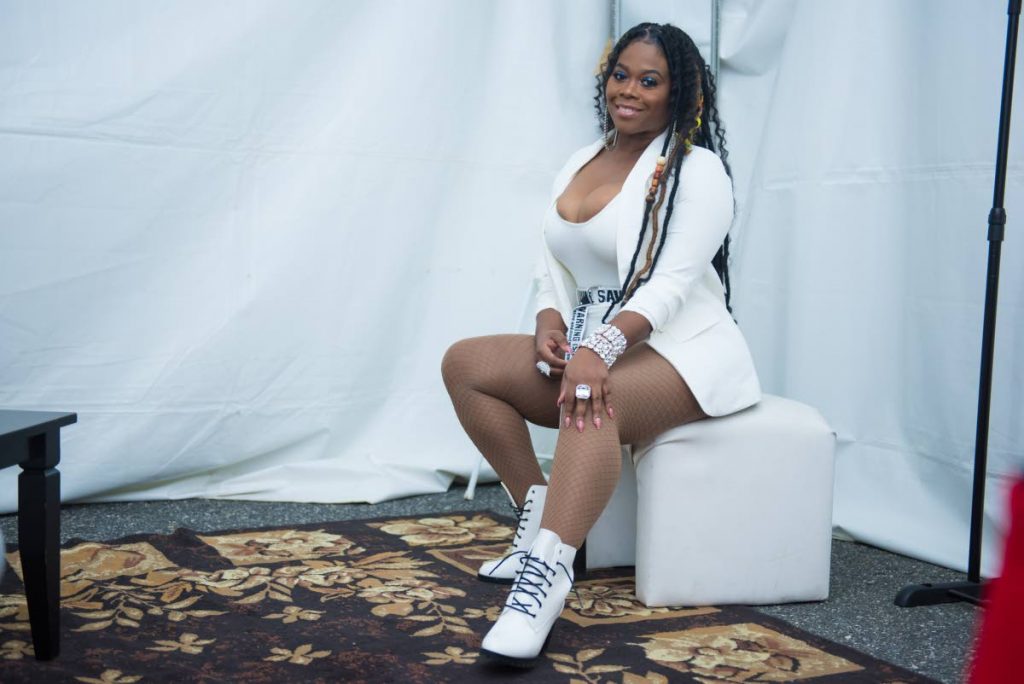Putting lyrics into context

“What are you doing?” I asked as I heard what sounded like a plastic bag rustling in the kitchen behind me. “Packing all yuh clothes in ah garbage bag!” followed by a little chuckle. I smiled. But then I wondered if what he said was one of the first signs of toxic masculinity, the description that many people have attributed to the lyrics of the song from which my ten-year-old had selected an excerpt to hook meh.
Toxic masculinity, according to my colleague Shane Superville, is defined as when "men try too hard to prove their masculinity to any and every person they meet by doing what society may traditionally deem masculine. Things such as being inconsiderate to people, enduring pain, being violent in some cases, lacking the emotional vocabulary to talk about their feelings. It can also include gender socialisation, such as boys being made to do yard work and girls having to do house work."
In a recent article, Barbadian columnist Marsha Hinds said the lyrics to Hookin Meh, written by Nadia Batson and sung by Farmer Nappy (Darryl Henry), reek of toxic masculinity, glorifies possessive and obsessive tendencies in men "and confuses them with markers of love". She also has an issue with the video, which she said is disturbing.

“Past the lyrics, there are also some alarming and, in my mind, insensitive images in the video to the song. Machel Montano brands the woman a trophy in response to an image that Nappy sends of her. This reinforces the objectification of women and diminishes her worth as anything other than an appendage that is to look pretty and not cause her owner any stress... I think the most dangerous thing about the song is that it is not ‘Ragga Ragga’ neither is it bashment. The sound is a mellow, methodical, sweet soca but the lyrics make a mockery of women’s right to safely negotiate the end of a relationship and to have the power of a ‘done’,” Hinds wrote. Social media went wild, with some users in full support of Hinds' claim, while others dismissed it as trivial and one of the many backlashes of the #MeToo movement.
today.caricom.org also got in on the debate using the opinions voiced mainly on social media. "Caribbean artists must use their platforms to empower women and girls - many of whom are subject to intimate partner violence. So if a woman wants to leave a situation in which she is uncomfortable, we must foster a society in which she is encouraged to do so," Kaide tweeted, while Maurice M Burke opined, "I also find the song's premise to be problematic, but I feel that very few things in the Caribbean can survive such detailed scrutiny. I think she (Hinds) is reaching and even unfair in her analysis." Gender specialist Ann-Marie Williams said the song was an indication of the amount of work needed to be done in the region as a result of the “culture of entitlement some men have over women’s bodies”, while a reader with a background in gender studies looked at it from an academic perspective. Although she said she understood Hinds' view, she highlighted the fact that "it was the woman who made all the decisive moves – from initiating the telephone conversation to ending the relationship over a meal that she had prepared, and removing his possessions."
I vividly recall the opposition I often came up against in my Communications Analysis class at UWI, when I insisted that not every bit of communication is worthy of a deep, intense analysis because sometimes the person "sending" the message, verbal or non verbal, may not necessarily be sending an external message. And that the interpretation of any message must always be put into context. I still hold that view. For example, I have this way of sometimes getting lost in my thoughts and staring of into space, and if you happen to be sitting or standing in the general direction in which I'm staring, you just might think I'm staring at you. Truth be told, I don't even see you and it still amazes me how people have different interpretations and deep analytic discussions on what they think is my intended message. I have had people, most times complete strangers, angrily ask, "What the f--- yuh watching?" I sometimes get, "Like yuh like mih or what?" from men who assumed I was flirting with them. Meanwhile, the only message I may have been sending was to myself asking, "Oh Lord! Did I remember to turn off the iron this morning?"
Farmer Nappy defended his song and video, saying it does not promote domestic violence. “All they see in the video is me holding a knife and singing. I just have bad table manners, that is all,” he told those in attendance at the Old Hilarian’s All Inclusive on February 2. I believe him. Put in a Trini soca context, my interpretation of his message is that he is a man fighting for the family he loves. The woman he thinks is beautiful and sexy, a good cook and mother, manages money well. A woman he thinks is priceless. Linguistically, that is how we speak. Besides, if the lyrics are to be analysed in the context of toxicity, why couldn't she have packed or allowed him to pack his own clothes in a dignified way? Folded and placed in travelling bags. Why by the roadside in a garbage bag in a dramatic Waiting to Exhale manner? (I'm waiting for the verbal boulders to start flying).
Anyway, it's a good thing I always insist that #1 son put things into context. So shortly after his little chuckle, I heard, "I'm putting trash into the bag girl. You think I will take the chance to throw your clothes if I don't have money to buy you new things?" Dat boy is ah trophy eh! Ah swear ah win de lottery.


Comments
"Putting lyrics into context"